Dreaming stories are an integral part of Aboriginal culture and Indigenous Australians are pioneers of sustainable land use. In this workshop, students will learn about the importance of animals and Dreaming stories to Aboriginal people, their culture and their connection to Country.
Browse all available workshops at Taronga Western Plains Zoo Dubbo below.
Looking for workshops at Taronga Zoo Sydney instead? View all Sydney workshops.
Workshops at Taronga Western Plains Zoo Dubbo
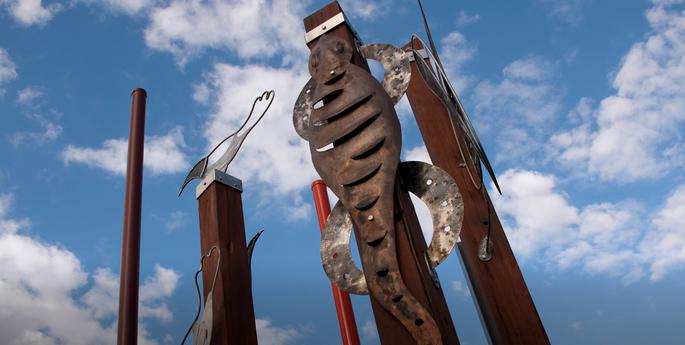 Early Stage 1 - Stage 1: Dreaming and Living on the Land
Early Stage 1 - Stage 1: Dreaming and Living on the Land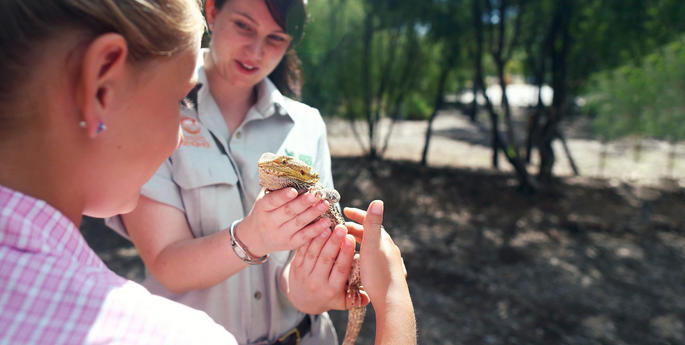 Early Stage 1 - Stage 6: Curiosity Class
Early Stage 1 - Stage 6: Curiosity ClassHumans are naturally curious, always asking questions and making predictions about the world around us. The living world fuels this curiosity, especially when we meet and interact with diverse animal species. The Curiosity Class is more than an animal encounter—it’s a chance for students to see, think, and wonder about the unique adaptations that help animals survive.
 Early Stage 1: How Living Things Survive
Early Stage 1: How Living Things SurviveIn this workshop, students will get up close with a range of native Australian animals to discover how living things find air, water, and energy in their environments. By examining animal bodies, movements, and their eating habits, students will uncover the amazing adaptations that help each species survive.
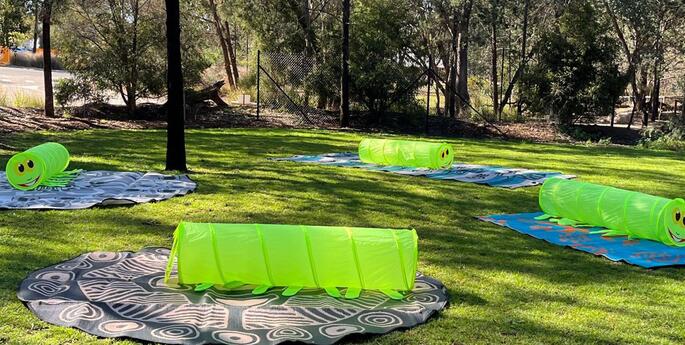 Early Stage 1: Our Space, Their Space- Exploring habitat connections
Early Stage 1: Our Space, Their Space- Exploring habitat connectionsDuring this workshop students will explore how the natural environment may be divided up by human-made items, like roads, paths, and bridges. Students will learn how different animals have different needs depending on where they live in their environment (terrestrial, arboreal & fossorial).
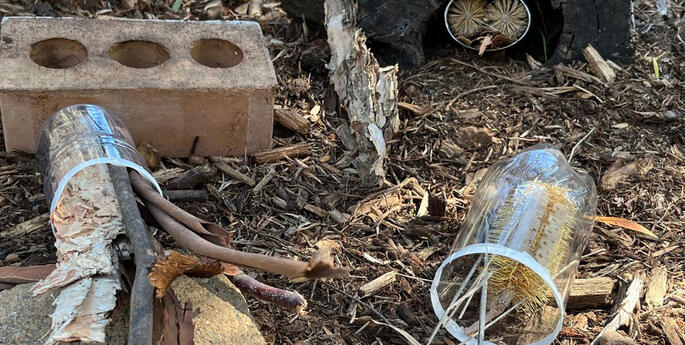 Pre School: Habitat Build
Pre School: Habitat BuildChildren will sing and dance their way through this hands on workshop while learning about habitats. They will participate in activities that will provide them with access to a range of natural materials in their environment to build habitats for animals located their local environment. While learning to model respect, care and appreciation for the natural environment.
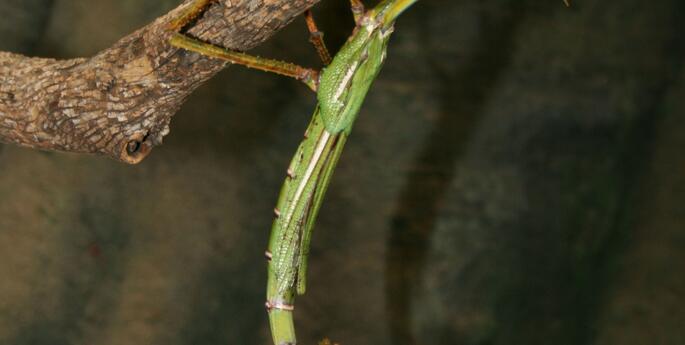 Stage 1: Data Detectives: Living things change over time
Stage 1: Data Detectives: Living things change over timeIn this workshop, students will be engaging with invertebrates to identify their observable features and group them based on their similarities. Through a Tree Shake activity, we will be collecting data on local invertebrates and using the results to create data displays of all the bugs we find!
 Stage 1: Life Cycles
Stage 1: Life CyclesIn this workshop, students will meet a range of Australian animals and compare their life cycles. They will discover how they can support the various needs of animals as they move through the different stages of their life cycle.
 Stage 2 - 3: Marradir, Garay, Birdany Tour
Stage 2 - 3: Marradir, Garay, Birdany TourThis workshop is a unique, guided walking tour of the Taronga Western Plains Zoo site. Students will engage with Dreaming stories and cultural learnings while highlighting the strong connections between Aboriginal people and the natural world.
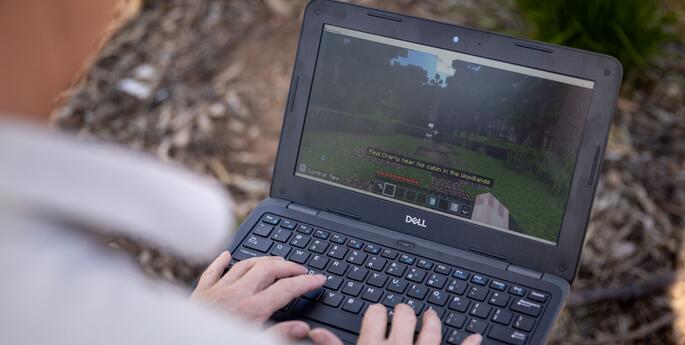 Stage 2 - 3: Minecraft Excursion: Eco-Detectives
Stage 2 - 3: Minecraft Excursion: Eco-DetectivesTake your students on a digital conservation adventure—at the zoo! Visit Taronga Western Plains Zoo for a 90-minute Minecraft Education workshop where students become Eco Detectives. Delivered by Zoo Education Officers and aligned to Stage 2–3 curriculum outcomes, this workshop includes a student workbook that takes learning beyond the screen and into the natural world. Set in diverse digital biomes, the immersive Minecraft experience encourages students to investigate real conservation challenges and take action. Students will also meet some of the Education Centre's animals during the workshop, helping them make meaningful connections between virtual ecosystems and real-life wildlife. Join us on a thrilling mission to revive biodiversity! Join us on a thrilling mission to revive biodiversity!
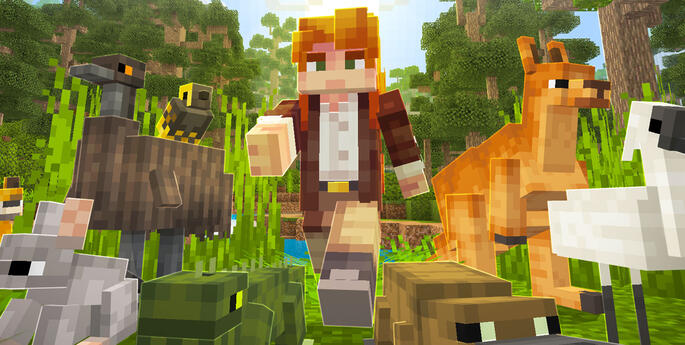 Stage 2 - 3: Minecraft Incursion: Eco-Detectives
Stage 2 - 3: Minecraft Incursion: Eco-DetectivesBring the zoo to your classroom! Zoo Education Officers will visit your school to deliver a 90-minute Minecraft Education workshop where students become Eco Detectives. Aligned to Stage 2–3 curriculum outcomes, the program includes a student workbook designed to take learning outdoors. Set across a range of digital biomes, this immersive experience inspires students to explore native animals, ecosystems, and conservation. Students take on the role of conservationists in their local environment, using interactive maps to raise awareness about threatened species and habitats—connecting the world of gaming with real-world action. Join us on a thrilling mission to revive biodiversity!
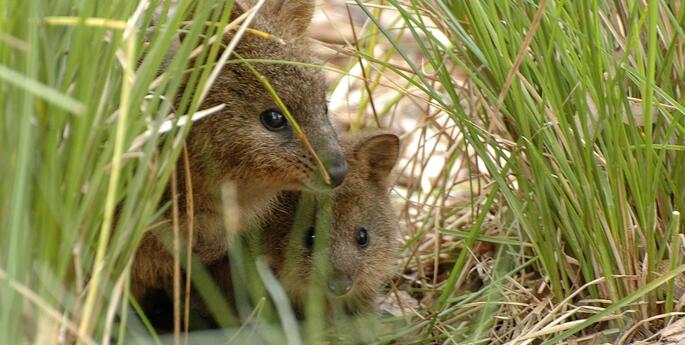 Stage 2: Energy in Ecosystems
Stage 2: Energy in EcosystemsStudents will explore the connections between habitats, ecosystems, and environments by observing the living and non-living things that make up these spaces. They will investigate how energy moves through food chains, discovering the important ways plants and animals depend on each other for survival.
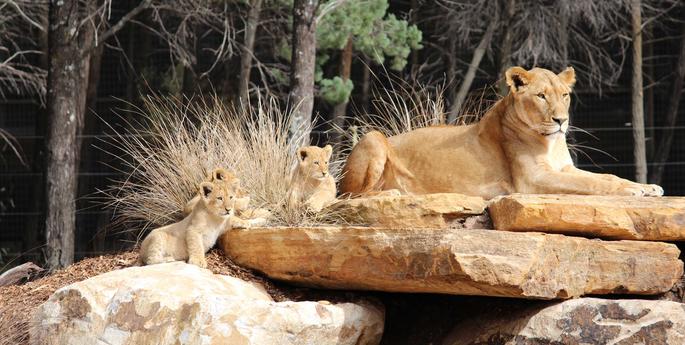 Stage 2: The Earth's Environment
Stage 2: The Earth's EnvironmentIn this workshop students will examine the unique features of Australian and Sumatran habitats and meet some animals that depend on these environments. Students will discover the ways people value and conserve environments, including Aboriginal and Torres Strait Islander Peoples. They will learn how their everyday consumer choices impact critical environments across the globe. While in grounds, a visit to the Wild Asian Wetlands is valuable to reinforce the concepts discussed in this workshop.